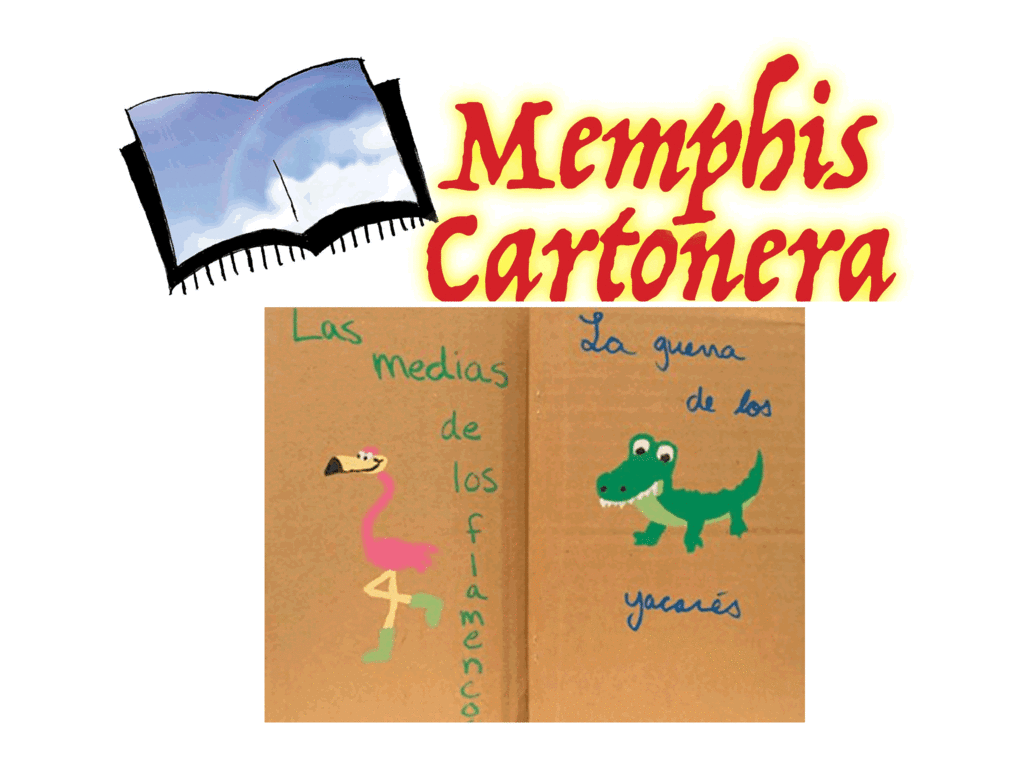A movement bringing art and literature together in revolutionary new ways to promote civic agency and engagement with the humanities has made its way to Rhodes and Memphis by way of Dr. Elizabeth Pettinaroli’s course—Spanish 325: Community and Literature in Hispanic Memphis and Latin America. Pettinaroli, a Spanish literature and language professor at Rhodes, has conducted field research on Cartonera publishers in Argentina, Chile, Uruguay, and Paraguay.
The movement’s genesis came during Argentina’s economic crisis of 2001, when young writers responded innovatively to the publishing industry’s collapse by creating Argentina’s first cooperative publishing house, Eloísa Cartonera. The model was simple and effective— they bought recycled cardboard (cartón in Spanish) from downsized workers at fair prices. They also created a collection of short stories, poetry, and drama from up-and-coming writers, prominent literary figures (who donated their copyrights), and “cartonera” authors. As a result, a cooperative model of manufacturing (publishing) and distribution was implemented. According to Pettinaroli, this project has revolutionized how we think about literature’s place in our lives, its model of production and sustainability, and its powerful potential to generate meaningful work for the dispossessed in times of crisis. Proof of the model’s success and influence she says is its replication across urban Latin America, Spain, and now in the U.S.
Rhodes is among the first colleges and universities in the U.S. to have a full course dedicated to the Cartonera movement. Moreover, the class has founded the first cooperative publishing house in the region called Memphis Cartonera. Students in Pettinaroli’s course meet to discuss novel philosophical and pedagogical notions informing the initiative, and to organize Cartonera publishing workshops that they conduct around the city in collaboration with local non-profit organizations such as Latino Cultural Center, Latino Memphis, Cazateatro Bilingual Theater group, Caritas Village, and Refugee Empowerment Program. By the end of the semester, each student will have also contributed to a volume of poetry and made at least eight books that will be donated to local libraries. “In this class, we are no longer mere passive consumers of knowledge but rather producers, and active cultural agents of change,” says Pettinaroli.
The goal of this initiative is to democratize access to art and literature. The course fosters new ways of thinking about the humanities in our lives and around the world. “Unleashing creativity allows us to pause and think about important things in life,” adds Pettinaroli. Research for this project is sponsored by a Mellon Grant for Innovative Pedagogies and the Buckman Center for International Education.
Judith Denham, a senior anthropology/sociology major, has been working with children at Caritas Village as part of the course. “The area that we’re focusing on is literacy through creativity,” she says. “We get them talking about art, we get them doing art, and then we tell them that their work is going to be the covers of books. That gets them thinking about creativity and literacy as not being mutually exclusive things. This is really important because I think creativity also breeds critical thinking and opens up the mind.”
For more information about Memphis Cartonera, visit its Facebook page and http://memphiscartonera.weebly.com/
By Lizzie Choy ’17
